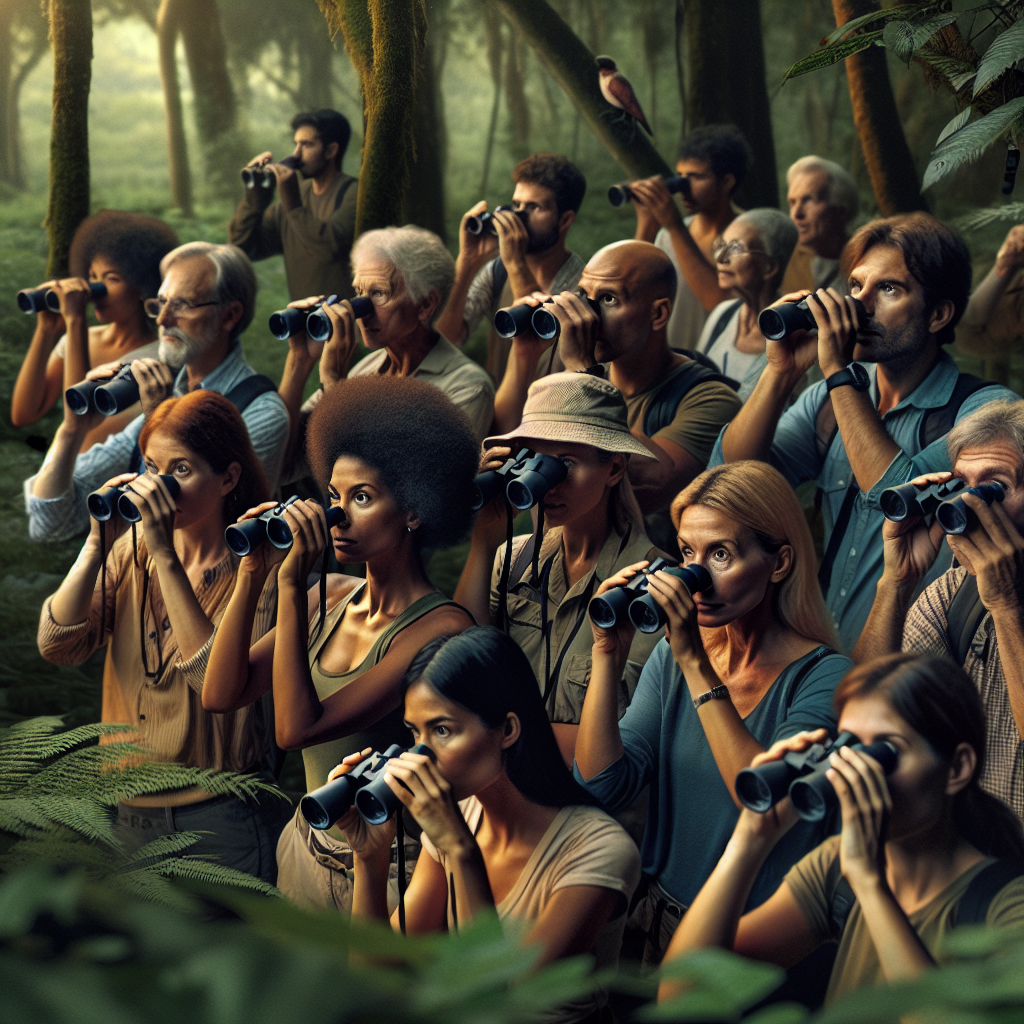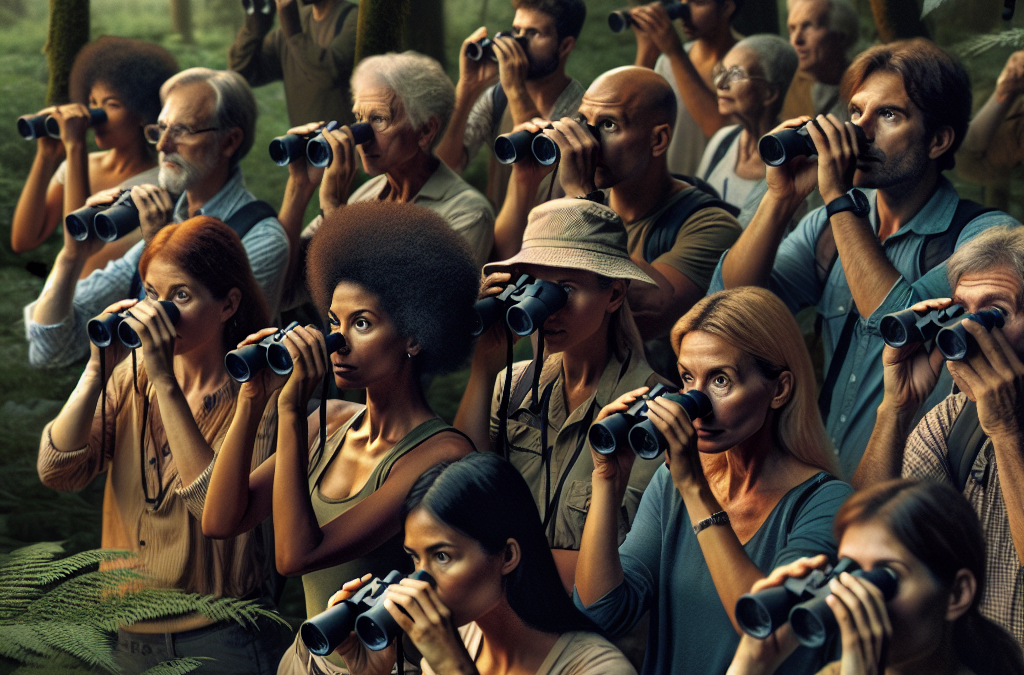Imagine yourself immersed in nature, surrounded by the tranquility of the wilderness, with just the camera in your hands. The article “Wildlife Watching: Ethical Practices and Safety” provides you with a guide on how to responsibly appreciate and marvel at the natural world around us without causing harm. It’s a chance to deepen your knowledge and understanding of the wonders of wildlife, while also ensuring your personal safety and the welfare of the creatures you’re there to admire.
Understanding wildlife watching
Wildlife watching is an engaging and popular activity for nature lovers worldwide. It involves observing animals in their natural habitats, capturing the essence of real-life animal behaviour, and building a deeper connection with nature. As a wildlife watcher, you observe, record, and appreciate animals in their natural surroundings where they display authentic behaviours that cannot be ignored or seen in captivity.
Overview of wildlife watching
Wildlife watching can take many forms, from bird watching in your backyard to going on dedicated wildlife safari tours. It could be as simple as observing the small birds in your neighborhood park or as adventurous as watching lions in the African savannah. No matter the setting, wildlife watching provides a unique opportunity to learn about animal behaviours, biodiversity, and conservation efforts.
Benefits and disadvantages of wildlife watching
Wildlife watching offers numerous benefits, including the promotion of animal conservation, increasing your knowledge about wildlife, and nurturing respect for nature. It feeds your curiosity and allows you to explore unique ecosystems. Wildlife watching also boosts local economies by promoting tourism. However, it also has its disadvantages. Unethical practices, such as encroaching on animal territories, disrupting their natural activities, and feeding wildlife, can be harmful and destructive.
Contribution of wildlife watching to wildlife conservation
Wildlife watching plays a crucial role in wildlife conservation. It brings awareness to the importance of preserving natural habitats and protecting wildlife. Financial revenue generated from wildlife tourism can also support conservation projects and local communities. Therefore, ethical wildlife watching is a powerful tool that aids biodiversity conservation while providing enjoyment for viewers.
The ethics behind wildlife watching
Just like any other activity involving the natural environment, wildlife watching must be done ethically.
Importance of Ethics in Wildlife Watching
Ethical wildlife watching ensures minimal disturbance to animals and their habitats. With respect and understanding, you can contribute to wildlife conservation efforts by enforcing and advocating for ethical practices.
Ethical considerations before embarking on wildlife watching
Before embarking on wildlife watching, consider ethical guidelines, such as respecting animal spaces, refraining from feeding wildlife, and not removing anything from the wildlife area. These measures help protect animals and their habitats.
Respecting wildlife rules and regulations
When engaging in wildlife watching, it’s vital to follow the rules and regulations set by local authorities or wildlife conservancies. This might include sticking to designated paths, observing from a distance, and disposing of waste properly.

Proper wildlife watching etiquette
Practicing proper etiquette during wildlife watching helps minimize disturbance to the animals and their habitats.
Maintaining appropriate viewing distance
Always keep a safe and respectful distance to avoid disturbing wildlife. This not only protects the animals but also ensures your safety.
Interactions with animals
Remember that these are wild creatures and not pets. Avoid trying to pet or touch the animals. Let wildlife be wild.
Feeding wildlife: Why it’s discouraged
Feeding wildlife disrupts their natural eating habits and can lead to dependence on human food, which is often not nutritionally adequate for them. It can also change natural behaviours and expose them to diseases.
Noise control around wildlife animals
Noise can scare or disturb wildlife. Maintain quietness and limit movements to avoid stressing the animals.
Impacts of unethical wildlife watching
Unethical wildlife watching can have devastating impacts on wildlife species and their habitats.
Disturbance to wildlife
Inappropriate behaviours, like getting too close, can cause stress and fear, disrupting their normal activities like feeding, breeding, and resting.
Negative effects on animal behaviour
Unethical practices can alter animals’ natural behaviour, potentially making them aggressive or causing them to abandon their habitat.
Habitat destruction
Walking off trails or driving off roads can lead to vegetation damage, soil erosion, and disturbance of delicate ecosystems.
Contribution to wildlife trafficking
Some unethical wildlife watchers may capture animals or their parts for illegal trade, contributing to the global issue of wildlife trafficking.

Safety considerations in Wildlife Watching
When it comes to wildlife watching, safety should be a top priority.
Personal safety tips
It’s essential to stay aware of your surroundings, follow the guide’s directions, and dress appropriately.
Safety gear for wildlife watching
Depending on the nature and location of the activity, you might need safety gear, such as a hat, sturdy shoes, protective clothing, binoculars, and a first-aid kit.
What to do when an animal attacks
In the event of an animal attack, stay calm, do not make sudden moves, and avoid eye contact. Immediately inform your guide and follow their instructions carefully.
Training and guiding facilities for wildlife watching
Training and guiding facilities play a crucial role in ensuring a safe and successful wildlife watching experience.
Relevance of professional training before Wildlife Watching
Training enables you to understand animals better, making it more likely to spot them, appreciate their behaviours, and ensure your actions do not disturb them.
Role of wildlife guides in safe and ethical wildlife watching
Wildlife guides use their knowledge and experience to help you safely navigate in wildlife areas and teach you how to observe animals without causing harm.
Public education on ethical wildlife watching
In terms of enhancing ethical wildlife watching practices, public education plays a critical role.
Educating locals about wildlife conservation
Educating the local community about the importance of wildlife conservation and the role they can play can significantly impact the protection and preservation of local wildlife.
Raising awareness on ethics among tourists
Educational programs targeting tourists can help them understand the positive impact of ethical wildlife watching and discourage practices that harm wildlife.
Role of local authorities and wildlife conservancies
Local authorities and wildlife conservancies can provide relevant information and rules to promote ethical wildlife watching practices.
Community involvement in wildlife watching
Community involvement is essential in protecting and preserving the local wildlife – their participation can ensure the sustainable management of wildlife resources.
Benefits of community involvement in wildlife watching
Community involvement can promote local ownership, generate income, and incentivize the community to protect and preserve local wildlife.
Establishing community-based wildlife conservancies
Community-based wildlife conservancies can ensure wildlife protection while benefiting the local community through eco-tourism.
Sustainable wildlife watching practices
Sustainable wildlife watching ensures that the practice can be enjoyed by future generations without damaging the environment or wildlife populations.
Promoting Eco-friendly practices
Promote practices such as minimizing waste, staying on marked trails, and using eco-friendly products to ensure that wildlife watching remains a sustainable activity.
The use of technology in minimizing disruption
Technology like drones or remote cameras can help us observe wildlife from a distance, minimizing disruption to the animals.
Supporting local economies: Responsible tourism
By supporting local economies and communities, we are directly supporting the conservation efforts in those areas. Choose local guides and stay in local accommodations.
Legal and policy frameworks governing wildlife watching
To protect wildlife and ensure ethical wildlife watching, various legal and policy frameworks have been established.
International wildlife laws
International wildlife laws regulate wildlife trade, protect endangered species, and establish protected areas to ensure wildlife is preserved for the future.
Penalties for unethical wildlife watching
People engaged in unethical wildlife watching can face penalties, including fines or imprisonment, under local and international laws.
Policy recommendations to support ethical and safe wildlife watching
Policymakers should address the issue by establishing stricter laws, encouraging public education, and promoting ethical wildlife watching for a sustainable future for both humans and wildlife.
In conclusion, ethical wildlife watching is not only an exciting and educational activity, but it also plays a crucial role in wildlife conservation. By adhering to ethical practices, we can bring about positive changes that aid in the preservation of wildlife and their habitats.

